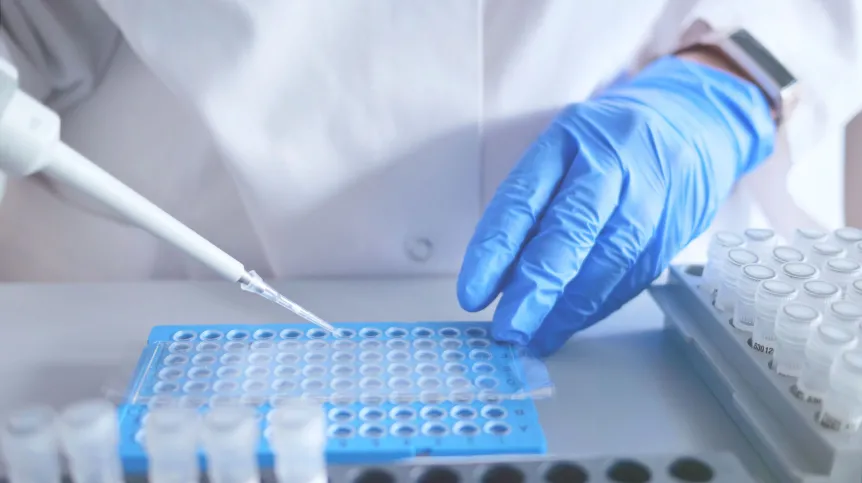
Professor Krzysztof Kamiński's team from the Faculty of Pharmacy at Kraków’s Jagiellonian University Medical College has developed a compound that can be used in the treatment of neurological diseases, including epilepsy, Alzheimer's disease and Parkinson's disease. The first phase of clinical trials is scheduled for next year.
The compound bears the symbol iQ-007. As reported by the Jagiellonian University, the preclinical development phase for the treatment of drug-resistant epilepsy has been successfully completed.
'Our compound was identified as the first-in-class small-molecule positive allosteric modulator (PAM) of EAAT2 for glutamate. EAAT2, which is expressed mostly in the central nervous system, is the main way of getting rid of excess glutamate from the synaptic space, lowering the risk of excitotoxic effects of the aforementioned neurotransmitter’, Professor Krzysztof Kamiński, is quoted saying in the university's press release.
According to the Kraków scientists, in addition to treating epilepsy, the compound can be used in innovative treatments of many other neurological, neurodegenerative and psychiatric illnesses in which glutamate plays an important role, such as Alzheimer's, Parkinson's, Huntington's, MS, ALS, ischemic strokes, pain, schizophrenia, depression, anxiety and addictions.
In addition to the scientists from the Jagiellonian University, research teams from other domestic and foreign institutions have also contributed to the development of the compound. These include the Medical University of Warsaw, the Institute of Pharmacology of the Polish Academy of Sciences, Rheinische Friedrich-Wilhelms-Universität Bonn, University of Oslo, Drexel University College of Medicine, Harvard University - Harvard Medical School and National Institute of Neurological Diseases and Stroke.
In 2020, the compound was commercialised by the Jagiellonian University via its Centre for Technology Transfer CITTRU. The licence was granted to an American biotechnology company iQure Pharma. The preclinical phase was realised in collaboration with researchers from the Jagiellonian University Medical College. (PAP)
PAP - Science in Poland
juka/ zan/ kap/
tr. RL













